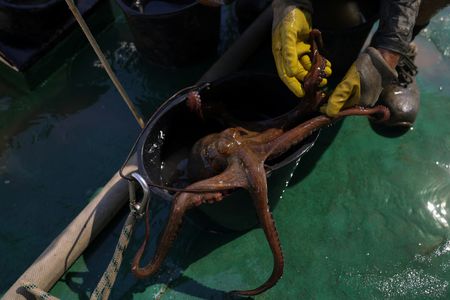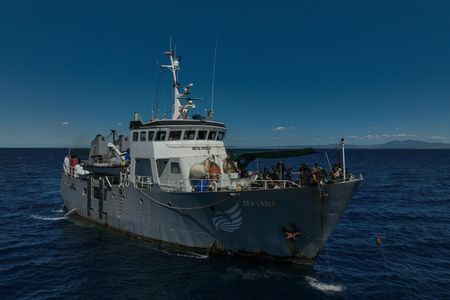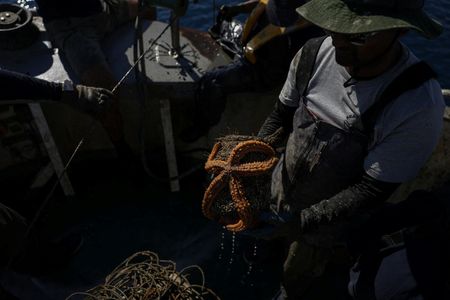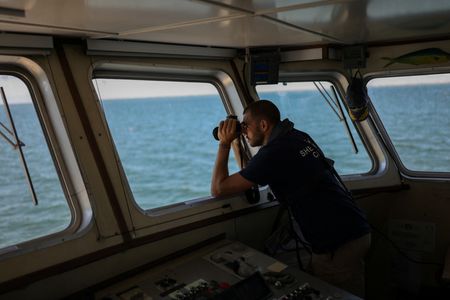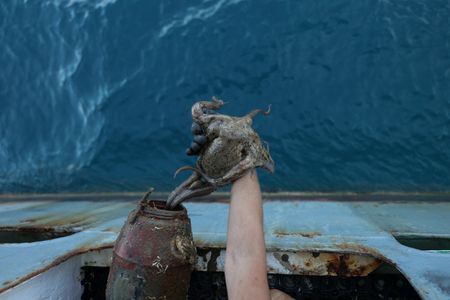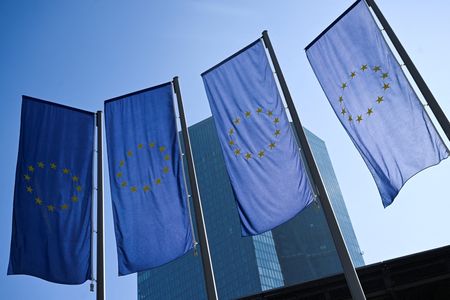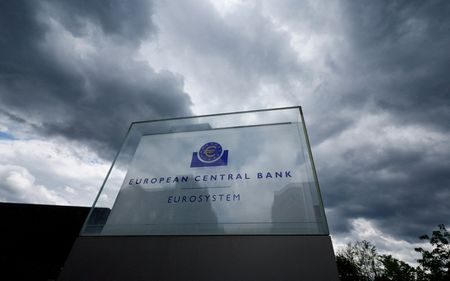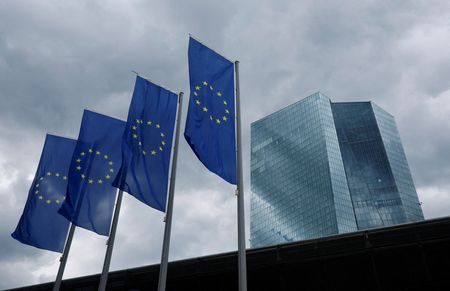By Renee Maltezou
THERMAIC GULF, Greece (Reuters) -“Octopus!” shouted the crew of the Sea Eagle vessel as a slippery cephalopod squirmed out of a plastic pot they had hauled from the seabed off northern Greece.
The octopus, which moments before was caught in an illegal trap, stretched its tentacles wide before its rescuers lowered it overboard to the freedom of the Aegean Sea.
This was one of the lucky ones. Since early July, the volunteers of campaign group Sea Shepherd, backed by regional authorities, have pulled up thousands of traps and saved more than 1,500 octopuses in a bid to overturn illegal overfishing that threatens the octopus population and may indirectly be increasing pollution of Greece’s seas.
But campaigners and authorities estimate that in total half a million octopus traps lie on the sea floor in northern Greece, aiming to serve increasing appetite for octopus.
“The numbers are absolutely mind-blowing,” said Sea Shepherd CEO Captain Alex Cornelissen during a recent day on the water referring to the number of traps hauled. “If you want to preserve the octopus then you need to do something about it.”
He said the problem extends across Europe, in Italy, Spain and Portugal. It comes as the global trade in octopus has ballooned over the last decade and as climate change alters reproductive habits.
Greece, where grilled octopus and ouzo are staples of the country’s shoreside fish restaurants, appears to be one of the worst-hit areas, Cornelissen said.
Hunters lure their prey by placing the pots, weighted with a stone, on the seabed. The barrel-shaped traps resemble the dens and rock holes where octopuses typically like to shelter and tend their eggs. They are tied to long lines of rope attached to small buoys.
The fishing method is banned or restricted during the summer breeding season in northern Greece. Instead of retrieving the pots at the end of June and redeploying them in October, some fishermen have only been adding to the lines for years.
The crew of the Sea Eagle have recovered 288 kilometres (179 miles) of line. The pots should be marked with the owner’s name but most are crusty and untagged.
The plastic pots are the most abundant litter item removed from the Thracian Sea, according to a recent study by environmental organisation iSea.
Some of the plastic pots disintegrate when pulled out, said Valia Stefanoudaki, Sea Shepherd’s campaigns’ director in Greece.
“We want to sit by the sea to enjoy our ouzo. But the fact that the sea is emptying does not even cross our mind,” said Stefanoudaki. “It’s a chain, from the tiniest (creature) in the sea to the biggest. When the chain breaks, it’s over.”
(Writing by Renee Maltezou; Editing by Edward McAllister, Alexandra Hudson)

